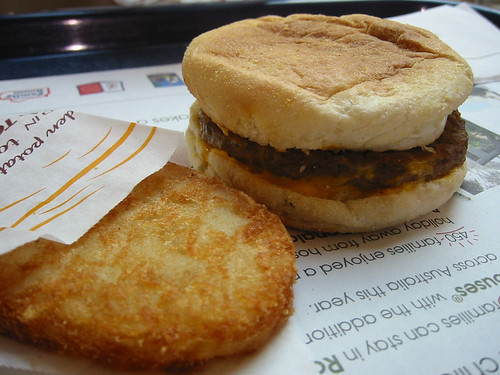 Have an orange if you cannot refuse that delicious high-fat, high-carbohydrate meal.
Have an orange if you cannot refuse that delicious high-fat, high-carbohydrate meal.The American Journal of Clinical Nutrition reported that drinking orange juice with a meal high in fat and carbohydrates neutralizes the oxidative and inflammatory stress generated by the unhealthy food that can damage blood vessel linings and contribute to the risk of heart attack and stroke.
The study by Husam Ghanim et al involved three groups (10 subjects in each group) of normal, healthy subjects who were asked to drink water or 300 kcal glucose or orange juice in combination with a 900-kcal a high-fat, high-carbohydrate (HFHC) meal. Blood samples were obtained before and 1, 3, and 5 h after the drinks and meal combinations were consumed.
The combination of glucose or water and the HFHC meal induced oxidative and inflammatory stress and an increase in TLR expression and plasma endotoxin concentrations.
In contrast, orange juice intake with the HFHC meal prevented meal-induced oxidative and inflammatory stress, including the increase in endotoxin, TLR and SOCS-3 expression. These observations may help explain the mechanisms underlying postprandial oxidative stress and inflammation, pathogenesis of insulin resistance, and atherosclerosis.
Study researchers say the potent preventative effect of orange juice likely is linked to its heavy load of the flavonoids naringenin and hesperidin, which are major antioxidants
Co-researcher Paresh Dandona emphasizes that vascular inflammation is an essential component of atherosclerosis, and that this inflammation may become permanent if a person consumes similar meals regularly.
"The choice of safe foods that are not proinflammatory may provide protection from the unending cycle of postprandial and cumulative inflammation," he says. "This choice may lower the risk of atherosclerosis and resistance to insulin."
Journal Reference
Husam Ghanim, Chang Ling Sia, Mannish Upadhyay, Kelly Korzeniewski, Prabhakar Viswanathan, Sanaa Abuaysheh, Priya Mohanty, and Paresh Dandona. Orange juice neutralizes the proinflammatory effect of a high-fat, high-carbohydrate meal and prevents endotoxin increase and Toll-like receptor expression. Am J Clin Nutr 2010 91: 940-949
The HFHC meal in this study is composed of an egg "muffin" sandwich, a sausage "muffin" sandwich and a serving of hash browns
TLR, Toll-Like Receptors, play an important role in the development of inflammation, atherosclerosis, obesity, insulin resistance, and injury to cardiac cells than can occur after a blocked vessel is reopened.
SOCS-3 is a suppressor of cytokine signaling proteins and an important mediator of insulin resistance, which contributes to development of type 2 diabetes.
Blackmores Bio C 1000mg is a high potency formula containing citrus bioflavonoids extract.
Picture: http://farm1.static.flickr.com/86/280463188_924e54e9d4.jpg


No comments:
Post a Comment